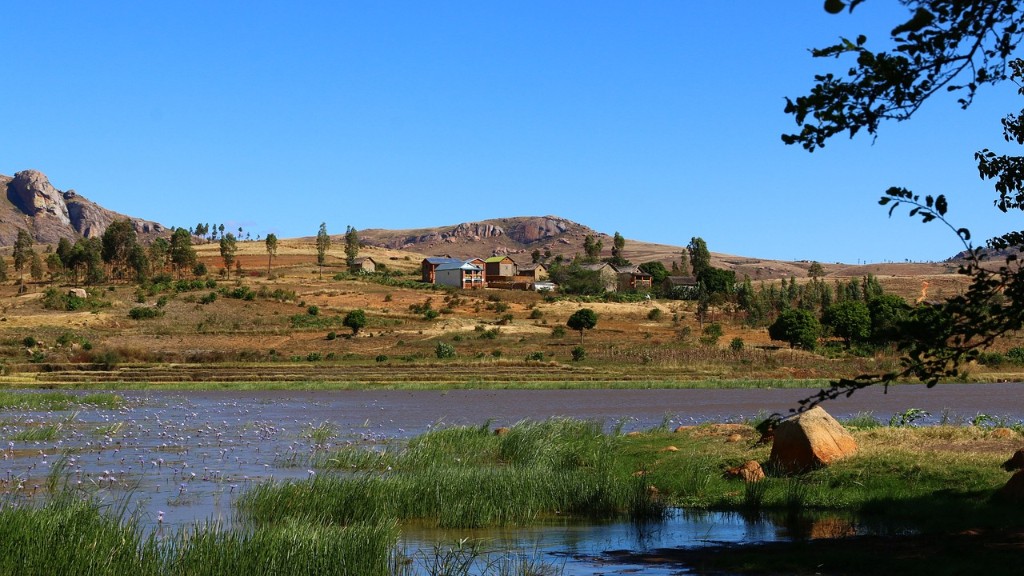In the rich and diverse culture of Madagascar, there are several gestures and customs that demonstrate respect towards others. With traditions deeply rooted in local customs and beliefs, the Malagasy people hold great importance in showing proper respect to individuals of different ages, social standing, and within different contexts. Understanding these gestures is essential to make a positive impression and foster meaningful connections when visiting or working in Madagascar.
One of the most common gestures that show respect in Madagascar is the traditional greeting known as the “salutation”. This involves bowing slightly with hands clasped together, often accompanied by a warm smile and gentle eye contact. The salutation is used to greet people of all ages and is typically performed when meeting for the first time, entering a room, or joining a gathering.
Another important gesture is to use formal language when addressing elders or individuals who hold higher social status. This includes using the appropriate title followed by the individual’s last name, such as “Monsieur” or “Madame”, when speaking in French or “Tompony Raha” when speaking in Malagasy. These formalities demonstrate respect and acknowledgment of their authority or hierarchy within the community.
Respect is also shown through acts of generosity. Offering gifts, even small tokens, is a way to convey respect and appreciation. These gifts are often symbolic and can include items such as rice, zebu meat, or local handicrafts. When presenting a gift, it should be given and received with both hands, a sign of respect and courtesy.
Furthermore, the importance of personal space and touch should be taken into consideration to show respect in Madagascar. While physical contact may be acceptable among friends or close family members, it is generally prudent to maintain an appropriate distance when interacting with others. This is especially true when interacting with individuals of the opposite sex or individuals from more conservative backgrounds.
In addition to these gestures, it is crucial to show respect for local customs and traditions. Participating in rituals and ceremonies with sincerity and reverence is highly appreciated. For instance, consulting with a family member or local guide to understand appropriate behavior during traditional ceremonies or religious events will help ensure that respect is shown to the customs and beliefs of the Malagasy people.
The Vezo fishing community, located along the southwestern coast of Madagascar, has its own unique set of gestures that demonstrate respect within their culture. As a community heavily reliant on the ocean for sustenance and livelihood, they hold a deep reverence for the sea and its resources. The Vezo people emphasize the importance of sustainable fishing practices and honoring their ancestors through gestures of respect.
For the Vezo people, one of the most meaningful gestures of respect is the act of “tsitsiry”. When encountering marine creatures, the Vezo gently touch them, showing their appreciation and respect for the animals that provide them sustenance. This gesture is believed to bring about good luck and a bountiful catch.
In addition, the Vezo have their own unique way of greeting and showing respect. They often perform a subtle bow combined with a soft clapping of hands, known as the “salim-basy”. This gesture signifies acknowledgment and is typically used when greeting elders or individuals of higher authority within the community.
The Importance of Hospitality in Malagasy Culture
Hospitality plays a significant role in the culture of Madagascar, with the Malagasy people known for their warmth and friendliness towards visitors. Sharing food and drink is an essential part of demonstrating respect and making guests feel welcome. The act of welcoming a visitor with a beverage or offering a meal is seen as a gesture of deep respect and hospitality.
Furthermore, when invited to a Malagasy home, it is customary to remove your shoes before entering. This gesture is a sign of respect and helps keep the home clean. Additionally, it is expected to bring a small gift, such as sweets or fruit, for the host as a token of appreciation for their hospitality.
Respect for Ancestors and the Famadihana Tradition
The Malagasy people hold a deep reverence for their ancestors and invoke their spirits for guidance and protection. One of the most significant traditions that demonstrate respect for ancestors is the “Famadihana” ceremony.
Famadihana, also known as the “turning of the bones”, is a ritual where the remains of ancestors are exhumed, wrapped in fresh cloth, and honored through music, singing, dancing, and feasting. This tradition showcases the respect and love the Malagasy people hold for their ancestors, believing that they play an active role in their lives even after death.
Environmental Respect and Conservation Efforts
Given its unique biodiversity and fragile ecosystems, Madagascar places great importance on environmental respect and conservation efforts. The Malagasy people acknowledge the significance of preserving their natural resources for future generations.
Various community-led conservation projects have been established throughout the country to protect endangered species and their habitats. These initiatives aim to promote sustainable practices, raise awareness, and foster respect for the environment.
